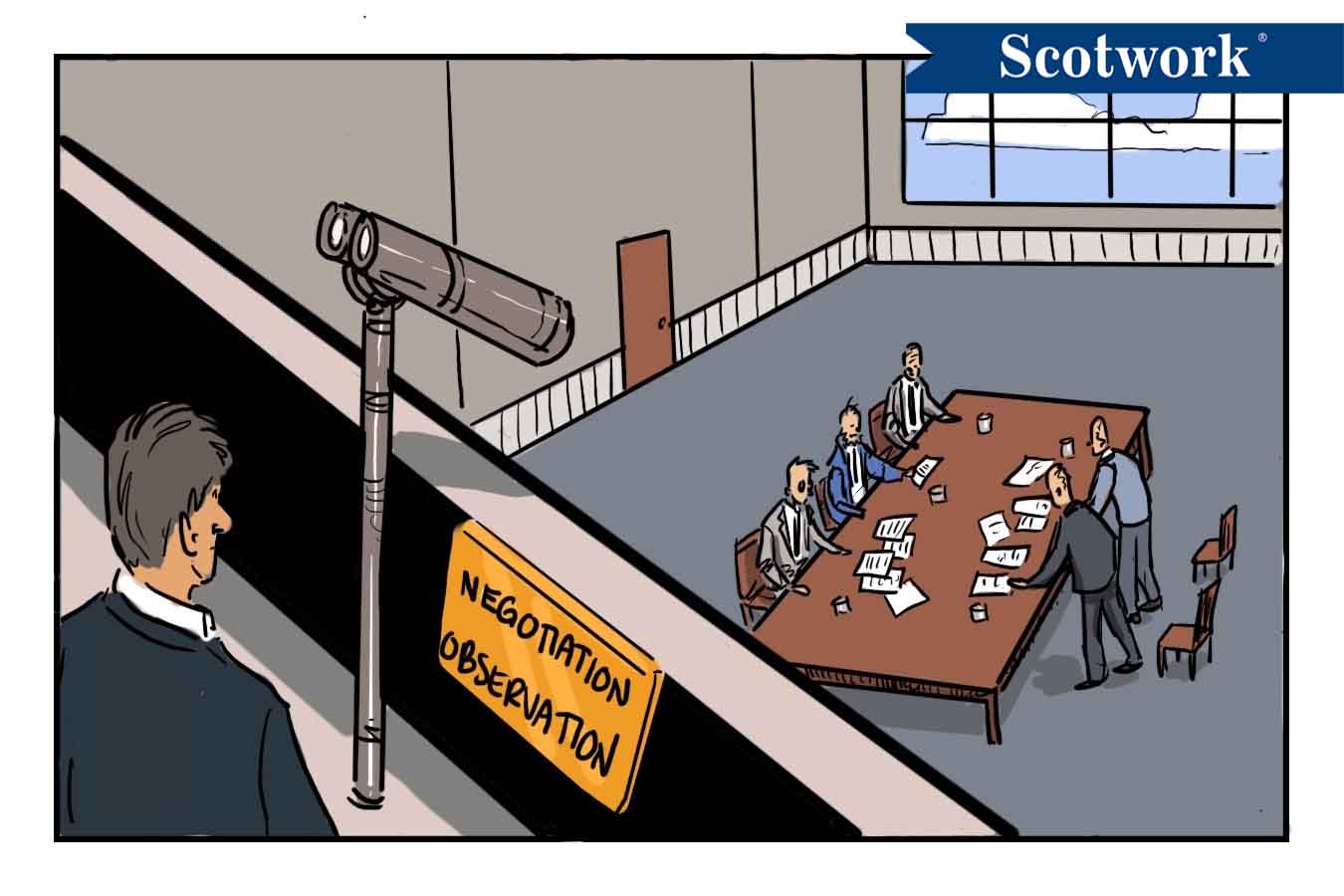This past week, I spoke to a group of entrepreneurs about empowering their teams at the negotiating table. Many of these business owners felt compelled to personally handle all negotiations. When I shared my experience about stepping back and empowering my team, they were genuinely surprised.
In my agency days, I frequently negotiated with a prominent Japanese manufacturer. These negotiations were formal and always conducted in person. We introduced ourselves by order of seniority; then the host team did the same. We observed the respectful tradition of meishi kōkan — presenting business cards facing the recipient while holding them carefully with both hands. After examining the card, each recipient placed it on the table for easy reference.
About that table: Our meetings took place with senior participants seated in the center, facing each other, flanked by junior team members. Typically, each side consisted of eight to 10 participants.
During my first negotiation, as the senior representative, I sat directly across from their senior executive. Unexpectedly, he announced he would delegate the negotiation to a trusted team member and moved to sit behind his team. Initially, I thought nothing of it. An hour into negotiations, I noticed him seemingly asleep. I was surprised, but I assumed he was tired.
These negotiations were tough and draining. The opposing team skillfully drove their agenda, often putting us on the defensive. The deals we reached always tested our limits, leaving us exhausted.
Several years later, I invited a data analyst to join these negotiations. After the opposing team’s third break one morning, our analyst remarked, “Did you notice the older gentleman coughs right before every break?” We were stunned. How had we missed that?
We realized the senior executive's cough signaled the need for his team to regroup privately. Investigating further, we learned that his role was one of strategic observation. Whenever he noticed critical points requiring attention or course correction, he signaled a break and privately guided his team’s next moves.
This revelation transformed my understanding of leadership at the negotiating table. I previously believed leaders should always be front and center. But I learned that leadership sometimes means stepping back.
As an observer, you gain clarity. You’re free from the pressures of immediate responses, allowing you to assess situations with a calmer mind. This space gives you the ability to pinpoint exactly when strategies are working and when adjustments are needed. Observers spot subtle shifts in body language, tone, and rhythm — cues that those directly involved in the heat of negotiation might overlook.
Being an observer also encourages your team’s growth. By stepping back, you communicate trust and confidence in their capabilities. This empowerment fosters deeper engagement and responsibility. Your team learns firsthand from their successes and failures, making their future performances stronger and more self-assured.
Moreover, the observer position allows leaders to maintain the strategic vision without becoming bogged down in tactical details. From this vantage point, you can maintain the broader organizational perspective and ensure that short-term gains align with long-term goals.
The entrepreneurs I spoke with laughed at the idea of appearing asleep behind their team. Yet they clearly saw the importance of empowering their people. After all, a business can’t truly grow if its leaders are handling everything themselves. Those who embrace observation and empowerment foster robust, self-reliant teams capable of driving sustainable success.
Negotiation Training Can Help You Embrace Observation While Empowering Your People.
Leaders who embrace observation and empowerment foster self-reliant teams capable of driving sustainable success at the table. Rely on Scotwork’s 50 years of expertise in negotiation training and consulting to grow your people and your business.

